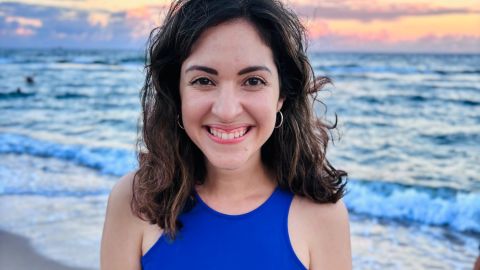Treating ADHD Without the Use of Medication
Attention Deficit Disorder with or without hyperactivity (ADD/ ADHD) is one of the conditions we commonly see at my facility, The Wellness Institute of Neurodevelopment (WIN)

Photo: 123rf.com
Attention Deficit Disorder with or without hyperactivity (ADD/ ADHD) is one of the conditions we commonly see at my facility, The Wellness Institute of Neurodevelopment (WIN). When diagnosing a child, there are many steps we take to ensure a proper diagnosis. Initially, this condition is diagnosed in children utilizing a behavior questionnaire (Vanderbilt or Connor’s scale), which parents and teachers fill out.
Then the patient undergoes laboratory studies to rule out other problems that may be affecting their concentration. For example, hypoglycemia and liver function to make sure that the liver is functioning well due to the fact that medications are metabolized through the liver. We also take a CBC (complete blood count) to make sure that there is not a low level of hemoglobin and that white blood cell counts are normal. The patient might be referred to a cardiologist to be evaluated to rule out any cardiac conditions, because the medication may cause fatal arrhythmias. Also, if there is a concern that the concentration problems could be caused by seizures, a referral to a neurologist is done to obtain an electroencephalogram. If the workup is negative and the questionnaire score shows the diagnosis of ADD / ADHD the treatment is psycho-stimulant medication and behavioral modification therapies. Medication works in 80 percent of patients. Nowadays, more and more adults are diagnosed using a similar process.
Frequently, parents come to our office because their children are not allowed in the classroom if not on medication, but due to concerns about the side effects, parents or the kids themselves don’t want to take medicine. Some of the side effects include patients acting differently, feeling depressed, or not enjoying life like they did prior to medication. The kids and their parents come to WIN to find a solution that can help them succeed without the use of medication.
Our goal is to help the patient be successful without requiring medication. We are very good at achieving this; approximately 90 percent of our patients are able to discontinue medication use. How do we do it?
The WIN System…
First, we do a very unique evaluation. This is the key to being able to design the most effective treatment plan for our patient. We include the scales for ADD diagnosis, but our main goal is to determine what is causing the symptoms. We conduct a very comprehensive medical evaluation. We utilize laboratory studies to evaluate the metabolic system in detail, obtain a clearer picture of what could be affecting neuronal communication, and neurotransmitters alike. In addition, we perform a very detailed evaluation of the patients skills compared to their peers and focus on academic performance. We evaluate communication, cognitive, motor and socio-emotional areas. In addition, we evaluate early development, auditory processing, processing of information, sensory integration, self-esteem, and social experiences to be able to define all the variables that could be affecting the patient’s performance.
Then, we design a detailed plan of treatment for all affected areas identified. A multidisciplinary team of experts builds this plan. Parents are part of the team; for adults they are part of the team themselves. And the most important aspect of the plan is to re-evaluate constantly to make sure that the patient is progressing as expected. The parents are giving constant feedback of the results they are seeing.
It is not an easy task, but we are proud to say it works, and our patient’s testimonials are our best letter of recommendation.
–
This information is for informational and educational purposes only and is not a substitute for medical advice, diagnosis or treatment.

















